Microsoft Word – Parent Communication 002 The Role of Parents
The Role of Parents
The major role of a parent is Support.
Most parents want to do as much as possible to help their children be the best that they can be and in so doing often put pressure on to their children that becomes unbearable and causes them to withdraw from the pressure situations or finish participating altogether.
Often parents are never aware of this situation as the family never complain or let the parents know, as they do not want to hurt them. They understand they were only doing their best and the easiest way to solve the whole issue is to withdraw.
This is the case with some many young people who never realise their potential and adults think what a shame it is and only if this or that had happened.
The facts are that most felt under pressure from parents or adults and felt they could not be sure of coping so, instead of letting parents down, they make excuses to withdraw and find something else to do where their parents were not involved and would not feel disappointed.
Support means many things.
- It might mean that you have the vehicle available whenever it is required but you must never make out or be heard to indicate that the time taken to support or transport young people around is a burden. Young people never really want to be the reason for any problems at home and hope that all enjoy the involvement as much as they do or want to.
- It may mean listening to endless ‘replays’ of how this might have happened ‘if only’. It is vital for young people to believe that parents are as interested in the performance as they are. Being discouraged from telling or sharing can be very discouraging and is another reason for a young person to withdraw.
- It may mean directing your young person to someone else for advice (that you might be able to give) as you may decide it is important for you to just have a support role. This person might be the coach or a mentor/older person (ex player) you have organised for your youngster to talk to when they need advice. You must be careful not to give advice that conflicts with the advice they should be listening to (the coaches). If this happens the young person will always lose on at least one count as if they follow you they will earn the wrath of the coach and if they follow the coach they feel they will be letting you down. If you want to give advice – be the coach and go through the appropriate courses. If you have been good and know a lot about a subject then your support of the coach will do all a lot of good.
- Support may mean deciding what a youngster needs is not want they want. In my experience I am aware of only a few cases of someone having every piece of equipment and everything else possible and reaching the highest level. Within a struggle there are a lot of lessons.
- Support the FairPlay concept as you must understand that the way people play and treat the ethics of sport is the way they live theirs lives. If they can get away with things in sport they will more often than not try that in life as well. This has nothing to do with being soft or not having a hard attitude as these things will blossom under a FairPlay approach as there will be more time spent thinking about what actions need to be achieved to do the best they can. Foul play is time spent on things that will not enhance performance. The referee’s rulings etc fall into this department and under no circumstances is it appropriate to show any dissent at all to authority, as in the end it is a distraction and never pays. How many times does any referee change their mind and for the rare occasions one might have any influence, how many other times does the officials get annoyed and go against
- the claimant and their team? Unfortunately the claimant is often the parents! This sort of behaviour can become a habit and be transferred to question the law.
- If you have any complaints go through the correct channels and do it quietly as any attempts in this area are seen more often than not by the young people as parents sticking their noses in or trying to show support by taking on the organisers rather than sticking up for what is right. Young people have a wonderful sense of what is right and wrong – however they have to be shown by your example and those of other adults that life isn’t always fair but it has to be coped with.
- Where possible provide space for practice or equipment to practice. The more basic the better as they start to use their imagination as to how they can improve this or that or make it better and their minds start to work – a major part of being successful in sport.
- Providing healthy food is one of the best ways of supporting the efforts of your family as good food provides the best fuel and that provides a great advantage.
- Be in the background and support the coach and other officials and always remember that the learning process is that people learn a bit at a time and that youngsters need to be the best they can be when they are 22-25 not at the age of 10 or 12. Be patient even when you know they can do better. Do you always perform to your potential?
- Applaud good play from both teams as this is a good example to the rest. It is surprising how much tension it takes off if you can recognise quality in your team and the opposition. There is twice as much to enjoy.
- Rather than ask “did you win” ask “did they enjoy the game” and “were you happy with your contribution”? Focus any discussion on their performance but not to the stage of putting pressure on?
By John Parker
A former international cricketer and sports management expert from New Zealand.


